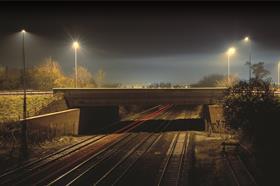Judicial review bids could mean bill for high speed project is unable to be passed in this Parliament

The legal challenges to the government’s £32bn high speed rail project to Birmingham and the north of England risk making it impossible for parliament to pass the requisite bill before the next election, lawyers have said.
The government’s decision to approve the high speed 2 (HS2) project is facing five separate legal challenges, with the government seeking to have them all heard together in the High Court in October.
Martin Damms, Pinsent Masons’ legal director, said the judicial review applications set out “classic arguments” regarding “inadequate consultation” as well as “environmental assessment deficiencies”.
He said that should the High Court give the green light to the judicial reviews in October, the process could last three to six months or even longer, raising the prospect that an outcome will not be reached by this time next year, when the HS2 hybrid bill is scheduled to be included in the Queen’s Speech for the 2013 parliamentary session.
A failure to do this could make it impossible to pass the bill before the next election.
“It depends on the complexity of the cases and the work load of the court. There is also of course the possibility of appeals. Some can go on for years,” he said
Destination High Court: see here for a full analysis of the legal challenges to HS2
Damms said the challenges were likely to delay the process of safeguarding the route as well as the plans for compensation, both scheduled to be complete by autumn.
“That’s all a bit up in the air now, so you would think that will not be completed until there is a resolution,” he said.
He added that if the challenges did proceed and were decided in favour of the campaigners, then that could lead to some serious revisions of the project.
“If the consultation or environmental assessments are found to be insufficient, then there could be substantial delays. Redoing that would be a major exercise and would raise the prospect that the bill would be pushed out beyond this parliament,” he said
“But ultimately it is more likely to be a failure of political will that would defeat the project - that and the project benefit costs ratio continuing to head south.”
Ray Puddifoot, Conservative leader of Hillingdon council, which is part of wider judicial review application brought by 18 councils, has described HS2 as a “monumental folly”, with the fight against it more winnable than the case against the third runway at Heathrow, which ended with a complex verdict that would have forced the government into a lengthy policy review. In the event the incoming coalition government scrapped the third runway plan.
Rupert Choat, head of construction disputes at CMS Cameron McKenna, said the Heathrow case was a classic example of the judicial review process where there was no clear outcome, but the challenge itself is used to raise opposition, delay plans and to erode political will.
“It’s not so much whether you win but about the impact you have while you are challenging. It’s about disruption and delay.
“The government will want it resolved as quickly as possible because the longer it goes on the greater the possibility that the challenge becomes self-fulfilling.”


























No comments yet